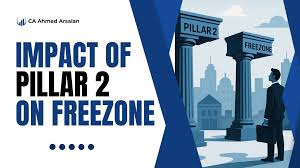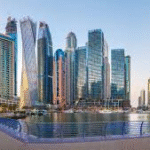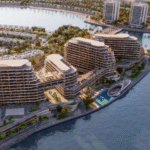Now Reading: 6 Impactful SME Tax Reliefs For Property Companies in 2025
-
01
6 Impactful SME Tax Reliefs For Property Companies in 2025
6 Impactful SME Tax Reliefs For Property Companies in 2025
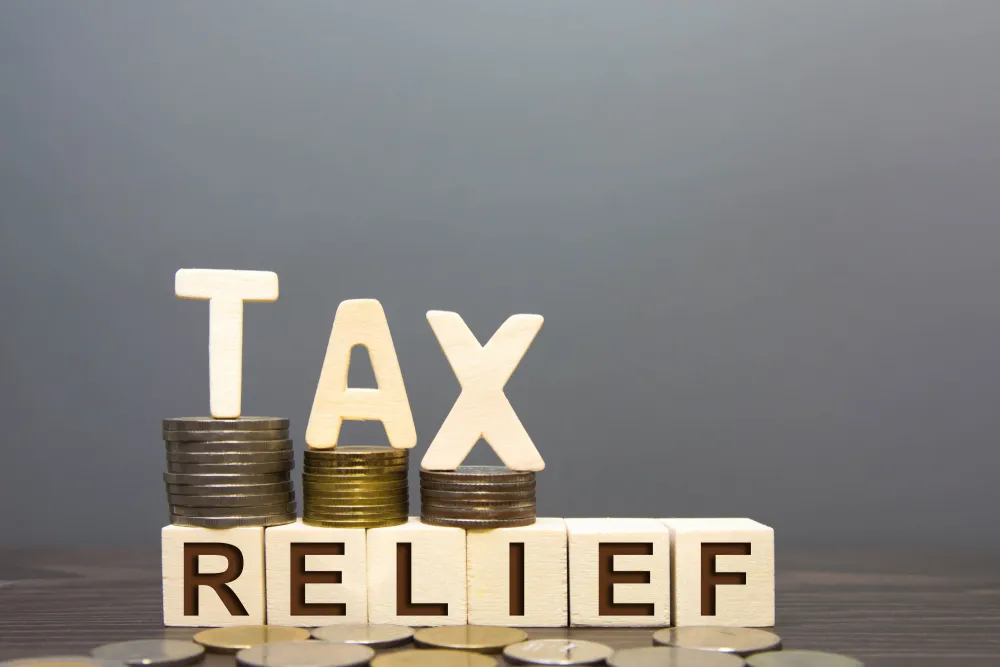
Table of Contents
Tax Reliefs For Property Companies: The Gulf Cooperation Council (GCC) real estate market, valued at $131.86 billion in 2024 and projected to reach $252.80 billion by 2033 with a 7.1% CAGR, is driven by $1.68 trillion in mega-projects like NEOM and Dubai’s Palm Jebel Ali, per imarcgroup.com and economymiddleeast.com.
Small and medium enterprises (SMEs) in real estate, defined in the UAE as firms with fewer than 250 employees and turnover below AED 250 million ($68 million), and in Saudi Arabia as firms with fewer than 250 employees and revenue below SAR 200 million ($53.33 million), per monshaat.gov.sa and uae.gov.ae, play a vital role. Tax reliefs in Saudi Arabia and the UAE, including VAT exemptions, Zakat reductions, and SEZ incentives, support SME property companies managing SAR 10–50 million ($2.67–$13.33 million) projects.
This guide, crafted in clear, SEO-friendly language with an engaging tone, outlines six impactful tax reliefs for GCC SME property companies in 2025, supported by data, legal insights, and risk mitigation strategies.
6 Impactful SME Tax Reliefs For Property Companies
1. VAT Threshold Exemptions for Small-Scale Developments
In the UAE, SMEs with taxable supplies below AED 375,000 ($102,041) annually are exempt from VAT registration, per Federal Decree-Law No. 8 of 2017, saving 5% VAT on SAR 10 million ($2.67 million) residential projects in Ajman or Sharjah, per taxsummaries.pwc.com. Saudi Arabia offers similar relief for firms with supplies below SAR 375,000 ($100,000), per ZATCA, per cleartax.com.
- Tax Savings: Saves $133,250 VAT on a $2.67 million project, per consultancy-me.com.
- Action: Monitor turnover for SAR 5 million ($1.33 million) projects to stay below thresholds, per alaan.com.
- Example: A $2.67 million Sharjah villa project avoids $133,250 VAT, yielding $213,600 at 8%.
- Source: taxsummaries.pwc.com, cleartax.com, consultancy-me.com
2. Zero-Rated VAT for First-Time Residential Sales
SMEs developing new residential properties in the UAE, like SAR 20 million ($5.33 million) apartments in Abu Dhabi’s Al Reem Island, can apply zero-rated VAT (0%) on first sales within three years of completion, recovering input VAT, per FTA’s VATP029, per deloitte.com. Saudi Arabia mirrors this for certain residential sales, per ZATCA, per ey.com.
- Tax Savings: Recovers $266,600 input VAT on $5.33 million construction costs, per finanshels.com.
- Action: Obtain completion certificates within three years for SAR 15 million ($4 million) projects, per makca.co.
- Example: A $5.33 million Dubai apartment project recovers $266,600 VAT, boosting $426,400 yields at 8%.
- Source: deloitte.com, ey.com, finanshels.com
3. Zakat Relief for SMEs in Saudi Arabia
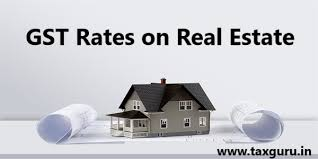
Saudi SMEs with net assets below SAR 10 million ($2.67 million) qualify for simplified Zakat calculations at 2.5% on estimated profits, not full assets, per ZATCA’s SME guidelines, effective 2024, per arabnews.com. This benefits SAR 10 million ($2.67 million) property firms in Riyadh.
- Tax Savings: Saves $66,625 Zakat on $2.67 million assets, per shuraatax.com.
- Action: File simplified Zakat returns by April 30, 2025, for SAR 5 million ($1.33 million) firms, per bestaxca.com.
- Example: A $2.67 million Riyadh office developer saves $53,300 Zakat, yielding $186,900 at 7%.
- Source: arabnews.com, shuraatax.com, bestaxca.com
4. SEZ Tax Incentives for SME Property Ventures
Special Economic Zones (SEZs) like NEOM and UAE’s Jebel Ali offer SMEs zero corporate income tax (CIT) for up to 50 years, VAT exemptions on imports, and 100% foreign ownership for SAR 20 million ($5.33 million) projects, per middleeastbriefing.com and neom.com.
- Tax Savings: Saves $1.07 million CIT on $5.33 million profits at 20%, per pwc.com.
- Action: Register with MISA or DED for SAR 15 million ($4 million) SEZ projects, per nevestate.com.
- Example: A $5.33 million NEOM retail unit avoids $800,000 CIT, yielding $426,400 at 8%.
- Source: middleeastbriefing.com, pwc.com, neom.com
5. RETT Exemptions for SME Restructurings

Saudi Arabia exempts RETT (5%) for SME corporate restructurings, like mergers or SPV transfers in SAR 20 million ($5.33 million) projects, per ZATCA’s Royal Decree No. M/84, effective April 9, 2025, per practiceguides.chambers.com. UAE SMEs benefit from waived transfer fees in SEZs, per immigrantinvest.com.
- Tax Savings: Saves $266,600 RETT on a $5.33 million Riyadh transfer, per saudigulfprojects.com.
- Action: Structure SAR 10 million ($2.67 million) deals via SPVs, per cityscapeglobal.com.
- Example: A $5.33 million Jeddah plot transfer saves $266,600 RETT, yielding $373,100 at 7%.
- Source: practiceguides.chambers.com, immigrantinvest.com, saudigulfprojects.com
6. Green Building Tax Credits for SMEs
SMEs adopting sustainable technologies in SAR 20 million ($5.33 million) projects, like solar panels in Dubai’s Al Quoz or Riyadh’s Al Rajhi, qualify for VAT or Zakat offsets under UAE’s Net Zero 2050 and Saudi’s Green Initiative, per imarcgroup.com and neom.com.
- Tax Savings: Saves $133,300 VAT/Zakat on $1.33 million green tech costs, per strategyand.pwc.com.
- Action: Partner with DEWA or NGHC for SAR 10 million ($2.67 million) projects, per saudigazette.com.
- Example: A $5.33 million Dubai green office saves $133,300 VAT, yielding $426,400 at 8%.
- Source: imarcgroup.com, strategyand.pwc.com, saudigazette.com
Legal and Tax Framework
- GCC Tax Framework:
- Saudi Arabia:
- RETT: 5% on disposals, exemptions for restructurings, per Royal Decree No. M/84, per arabnews.com.
- VAT: 15% on commercial transactions, threshold exemption below SAR 375,000, per cleartax.com.
- Zakat: 2.5% on net assets, simplified for SMEs below SAR 10 million, per ey.com.
- CIT: 20%, zero in SEZs, per middleeastbriefing.com.
- UAE:
- VAT: 5% on commercial transactions, zero-rated for first residential sales, exempt below AED 375,000, per taxsummaries.pwc.com.
- CIT: 9% for taxable income above AED 375,000, zero in SEZs, per pwc.com.
- Transfer Fees: 4% in Dubai, 2% in Abu Dhabi, waived in SEZs, per immigrantinvest.com.
- E-Invoicing: Mandatory in Saudi Arabia (2021) and UAE (2025), penalties up to SAR 50,000 ($13,333), per cleartax.com.
- AML: KYC mandatory for transactions above SAR 100,000 ($26,667), penalties up to SAR 5 million ($1.33 million), per pwc.com.
- SME Definitions: UAE: <250 employees, turnover <AED 250 million; Saudi Arabia: <250 employees, revenue <SAR 200 million, per uae.gov.ae, monshaat.gov.sa.
- U.S. Tax Framework:
- Reporting: Declare income via Forms 1040, 1116, Schedule E under FATCA. Income taxed at 10–37%, capital gains at 0–20%, per IRS.
- Foreign Tax Credit (FTC): Offset VAT/RETT/Zakat against U.S. liability, per brighttax.com.
- FEIE: $130,000 exclusion for earned income, not rentals.
- Residency: SAR 2 million ($533,333) investments qualify for Saudi Premium Residency or UAE Golden Visa, per globalresidenceindex.com.
Risks and Mitigation
- Compliance Penalties: VAT/Zakat errors risk SAR 50,000 ($13,333) fines, per cleartax.com. Use ZATCA/FTA-compliant software, per alaan.com.
- Oversupply: 35,000 units in 2025 may cut yields by 2–3%, per cushwake.ae. Target high-demand areas like Al Reem, per realestatesaudi.com.
- Regulatory Changes: SEZ/CIT updates risk cost increases, per ms-ca.com. Monitor ZATCA/FTA, per finimize.com.
- Currency Volatility: SAR/AED fluctuations impact returns. Hedge via Riyad Bank, per omniacapitalgroup.com.
- U.S. Tax Burden: IRS reporting reduces returns. Maximize FTC, per brighttax.com.
Step-by-Step Guide for U.S. Investors
- Identify Tax Reliefs: Assess SAR 10–20 million ($2.67–$5.33 million) projects for VAT/Zakat exemptions, per cleartax.com.
- Set Budget: Allocate $5.33 million, including 5% RETT/VAT ($266,600, if applicable) and 2% fees ($106,600 in Abu Dhabi), per immigrantinvest.com.
- Target SEZs: Develop in NEOM or Jebel Ali for SAR 15 million ($4 million) projects, per middleeastbriefing.com.
- Leverage Green Credits: Incorporate sustainable tech for SAR 10 million ($2.67 million) projects, per neom.com.
- Ensure Compliance: File VAT/Zakat by April 30, 2025, and U.S. taxes by April 18, 2025, with FTC, per brighttax.com.
- Monitor Yields: Track 6–9% returns via propertyfinder.ae, per hermesre.ae.
Conclusion
The GCC’s $131.86 billion real estate market, set to reach $252.80 billion by 2033, offers SMEs significant tax reliefs, saving up to $1.07 million on SAR 20 million ($5.33 million) projects through VAT exemptions, Zakat relief, and SEZ incentives, per imarcgroup.com and pwc.com. U.S. investors, leveraging FTC and ZATCA/FTA frameworks, can achieve 6–9% yields in high-demand areas like NEOM and Al Reem, mitigating risks like oversupply and compliance penalties, per cushwake.ae and cleartax.com. These reliefs align with Vision 2030, empowering SME property companies to thrive, per strategyand.pwc.com. tax reliefs
read more: 8 Innovative Blockchain Tax Tools Transforming Investments in 2025




